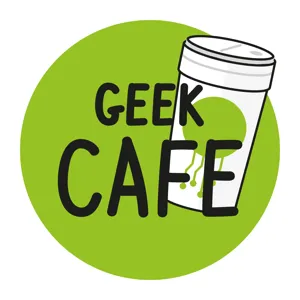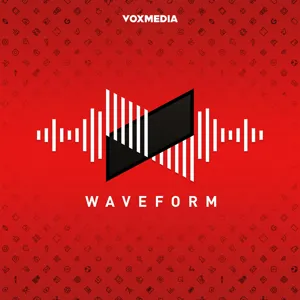Podcast Summary
Elon Musk's Legal Battle with OpenAI: Musk, a co-founder and early investor in OpenAI, is suing the company for allegedly breaching founding agreements and transforming from a non-profit to a for-profit enterprise valued at $86 billion, raising concerns about power balance and public domain in AI industry.
The relationship between Elon Musk and OpenAI has turned sour, leading to a legal battle over allegations that OpenAI breached its founding agreements by transforming from a non-profit AI developer to a for-profit company valued at $86 billion. Musk, a co-founder and early investor in OpenAI, has expressed disappointment in its current direction and is now competing with it through his own AI company, XAI. The lawsuit filed by Musk accuses OpenAI of misrepresenting its mission and intentions, as it was initially positioned as a non-profit dedicated to advancing AI for the benefit of all humanity. However, the company has since become a commercial entity, with Microsoft as a major stakeholder. This shift has raised concerns about the balance of power in the AI industry and the potential consequences for the public domain.
Elon Musk's Lawsuit Against OpenAI: Breach of Contract or Promissory Estoppel?: Musk's lawsuit against OpenAI for breach of contract and promissory estoppel faces challenges due to the questionable existence and enforceability of the underlying agreement.
Elon Musk's lawsuit against OpenAI alleges breach of contract and promissory estoppel, but the existence and validity of the contract are in question. Musk claims OpenAI, now a for-profit entity aligned with Microsoft, breached an agreement to develop technology as a nonprofit and open-source it. However, legal experts suggest that without a written and enforceable contract, it may be challenging to win a breach of contract lawsuit. Additionally, Musk's claim of promissory estoppel, which involves a promise leading another party to rely to their detriment, also relies on the existence of a contract. Furthermore, Musk's assertion that OpenAI's GPT-4 has achieved Artificial General Intelligence (AGI) is a controversial view, and it remains unclear how this claim fits into the lawsuit.
OpenAI's AGI development and societal implications: OpenAI's AGI development could impact Microsoft's access to the technology and raise questions about who decides its use due to its massive power and existential implications.
OpenAI's achievement of Artificial General Intelligence (AGI) would have significant societal implications, as well as contractual implications for OpenAI and Microsoft. OpenAI, which is in the process of developing AGI, has a deal with Microsoft that grants Microsoft access to computing power for pre-AGI technologies. However, if OpenAI achieves AGI, Microsoft will no longer be able to license or use that technology. OpenAI is retaining control to make decisions about the use of AGI due to its potential massive power and existential implications. Elon Musk, in a lawsuit, argues that GPT-4, which OpenAI has developed, is actually AGI and that the deal between OpenAI and Microsoft no longer applies. Determining who qualifies to make the decision about AGI is also a contentious issue, with some arguing that it will be obvious, while others believe it will be difficult due to the evolving capabilities of AI. OpenAI has not yet achieved AGI, but the development is progressing, and the debate around its definition and implications continues.
OpenAI vs Elon Musk: AGI Debate and Lawsuit: OpenAI denies GPT-4 is AGI, accuses Musk of jealousy and sour grapes, shares old emails showing past disagreements, and disputes over control and resources in OpenAI's for-profit subsidiary.
The debate over what constitutes Artificial General Intelligence (AGI) continues, and OpenAI's response to Elon Musk's lawsuit involves denying that GPT-4 is AGI while accusing Musk of being jealous and sour grapes due to OpenAI's success. OpenAI also shared old emails from 2015 and 2018, including one from Musk expressing doubt in OpenAI's ability to compete without significant resources. OpenAI argues that they followed their mission of openness in releasing the fruits of AI after it's built, but not the code itself. The falling out between Musk and OpenAI in 2018 reportedly stemmed from disagreements over the structure of OpenAI's for-profit subsidiary. Musk allegedly wanted majority equity, but OpenAI maintained control. The emails show that Musk acknowledged the need for significant resources and the eventual need to limit openness as AI becomes more powerful. However, the exact level of Musk's involvement and consciousness while writing the emails is unclear.
The public dispute between Elon Musk and OpenAI: The disagreement between Musk and OpenAI highlighted the tension between open AI ideals and for-profit realities, and underscored the importance of transparency and understanding true company motivations in the AI industry.
The public dispute between Elon Musk and OpenAI, as revealed through a lawsuit and subsequent blog posts, highlights the tension between the ideals of open AI and the realities of for-profit research and development. Musk accused OpenAI of hypocrisy for presenting themselves as altruistic while acting as a capitalist entity. OpenAI, in turn, denied Musk's claims and accused him of dishonesty. The exchange sheds light on the motivations and concerns of key players in the AI industry during its early stages. It also underscores the importance of transparency and understanding the true nature of companies, especially those dealing with advanced technologies like AI. The lawsuit and subsequent events served both parties, allowing Musk to make a public statement and OpenAI to defend its reputation. However, it also raises questions about the governance, data practices, and openness of OpenAI, which remains a secretive organization. Ultimately, this incident demonstrates the complexities and nuances of the AI landscape and the ongoing debates surrounding its development.
The Consequences of Company Slogans and Names: New EU law aims to rein in tech giants' dominance, leveling the playing field for competitors by stopping favoritism of their own services.
Companies' slogans and names can have significant implications and may come back to haunt them. For instance, OpenAI's "don't be evil" mantra and Facebook's "move fast and break things" have become synonymous with their misdeeds. Meanwhile, the European Union's Digital Markets Act, which went into effect this week, aims to rein in the power of tech giants like Google, Apple, Amazon, and Meta. The law requires these companies to stop favoring their own services and instead level the playing field for competitors. This long-awaited regulation marks a significant step towards limiting the dominance of tech giants and promoting a more competitive market.
New EU law limits market power of big tech companies: The Digital Markets Act (DMA) prohibits self-preferencing and requires tech giants to open up their platforms to competitors, leading to more competition and potential innovation in the tech industry.
The European Union's Digital Markets Act (DMA) is a new law that aims to limit the market power of big tech companies by prohibiting self-preferencing and requiring them to open up their platforms to competitors. This means that tech giants like Google, Microsoft, and Apple can no longer prioritize their own products and services over competitors on their own apps and platforms. The DMA also requires Apple to allow sideloading of apps onto iPhones, giving users more freedom to choose which apps to use. The implications of this law extend beyond Europe, as other countries are considering similar regulations. For instance, consumers outside Europe may eventually see changes to the apps and services they use as a result of this law. Overall, the DMA represents a significant shift in the regulatory landscape for tech companies and could lead to more competition and innovation in the tech industry.
Apple's Controversial Response to Europe's Digital Markets Act: Apple is complying with the DMA by allowing alternative app stores and payment processing options, but imposing new fees on developers who opt out of using Apple's system, potentially costing large developers millions annually. Critics argue this is a way for Apple to maintain their monopoly and control over the App Store.
The Digital Markets Act (DMA) in Europe, which aims to regulate large tech companies like Apple, has led to a controversial response from the tech giant. Apple is complying with the DMA by allowing alternative app stores and payment processing options, but in response, they are imposing new fees on developers who opt out of using Apple's payment system. These fees could amount to millions of dollars annually for large developers like Spotify. Apple argues that they are entitled to these fees due to the infrastructure they provide, but critics argue that it is a way for Apple to maintain their monopoly and control over the App Store. The DMA also allows for sideloading of apps, which Apple argues could lead to less safe apps being downloaded by consumers. However, some believe that this argument is a cover for Apple's desire to protect their profits. The DMA could potentially be implemented in individual US states, but it remains to be seen how Apple and other tech companies will respond.
Apple and Google Resist EU's Digital Markets Act: Despite the EU's efforts to regulate tech giants like Apple and Google through the Digital Markets Act, these companies are pushing back, potentially leading to costly and litigious processes, and uncertain outcomes.
The Digital Markets Act (DMA) aims to regulate tech giants like Apple and Google, but these companies are pushing back strongly against it. Apple, for instance, is complying with the DMA letter by letter, but not in spirit, making the process expensive and potentially litigious. The DMA's intentions, such as allowing alternative app stores and payment processing options, are questionable, especially given the resistance from tech giants. Some critics argue that the DMA may result in minor improvements, similar to GDPR's cookie pop-ups, while others see potential for significant change. Regardless, it's clear that tech giants will fight to protect their profits, potentially slowing down the regulatory process.
New regulation in Europe targets tech market dominance: The DMA introduces significant fines and fosters competition, potentially benefiting new businesses and consumers
The Digital Markets Act (DMA) in Europe, which aims to regulate tech companies, may not completely solve the issue of market dominance by a few big tech firms, but it can introduce meaningful changes. The DMA includes provisions for significant fines, up to 20% of a company's global revenue, for severe violations, making it a more impactful penalty than previous fines. Although it's too early to determine if the DMA is effective, it has the potential to create opportunities for new competitors and businesses, and it contributes to public education about the inner workings of tech companies. Regardless of the DMA's ultimate impact, the process of implementing and complying with the regulation is shedding light on important aspects of these tech giants' operations.
Europe's Digital Markets Act: Promoting Competition and Encouraging Innovation: Europe's DMA aims to promote competition and encourage innovation through pro-competitive measures, potentially benefiting companies globally
The Digital Markets Act (DMA) in Europe, despite skepticism from the tech industry, is an important step towards promoting competition and encouraging innovation. Critics may argue that Europe is trying to regulate because it can't innovate, but the lack of innovation in the US, where there is less regulation, proves otherwise. The DMA's pro-competitive measures could benefit companies both in Europe and beyond. As for me, I was recently excited to receive my Apple Vision Pro, but my team is holding off on getting one for now. Regardless, it's essential to keep an eye on these developments and their impact on the tech industry.
Mixed Reviews for Apple Vision Pro: Some users find joy in Apple Vision Pro's features, but others find it heavy and less useful than expected. Its potential lies in specific tasks like virtual meetings and entertainment.
The Apple Vision Pro, a new and highly anticipated piece of technology, has received mixed reviews from early adopters. While some users, like Joanna Stern from the Wall Street Journal, have found joy and novelty in the device's features, others have expressed disappointment and found the device to be less useful than expected. The initial excitement of trying a new gadget has worn off for some users, revealing that the device's weight and limited practical applications make it less desirable for daily use. Despite the mixed reviews, Joanna has found value in using the Vision Pro for specific tasks, such as virtual meetings and entertainment, and believes that it could have potential for the future. Overall, it remains to be seen whether the Apple Vision Pro will be a lasting innovation or a short-lived novelty.
Considering the pros and cons of Apple Vision Pro: The Apple Vision Pro offers advantages during travel but can be inconvenient due to its size and setup process, as well as the need for breaks during prolonged use.
Using new technology like the Apple Vision Pro can come with its own set of frustrations and compromises, making it less convenient than expected in certain situations. For instance, the size and setup process can be cumbersome, especially when traveling. Additionally, prolonged use can lead to a need for a break. These factors can make users consider sticking with more traditional devices like laptops or smartphones. However, there are benefits to using the Vision Pro, such as its effectiveness during long flights or commutes, where it can help take the focus away from uncomfortable conditions. Overall, while the Vision Pro offers unique advantages, it's essential to weigh these against the potential inconveniences before fully committing to the technology.
Experience enhanced flying with Vision Pro headset: The Vision Pro headset offers unique experiences and entertainment, allowing individuals to enjoy content alongside partners, but can cause disorientation upon removal.
Technology, specifically the Vision Pro headset, can significantly enhance the flying experience by providing entertainment and allowing individuals to enjoy different content alongside their partners. However, there can be a sense of disorientation when removing the headset and returning to reality. The convenience and unique experiences offered by the Vision Pro have the potential to change how we consume media and interact with our surroundings. The speaker's personal use cases include watching shows separately with their spouse while being physically close and using it as a tool to escape uncomfortable situations on flights. The technology's immersive nature can make it difficult to adjust when it's removed, blurring the lines between digital and physical worlds.
Apple Vision Pro: Promising but Needs Improvements: The Apple Vision Pro offers unique features like spatial videos and photos but faces mixed reactions due to form factor and avatar personas. Users find it useful for travel, entertainment, and spousal avoidance, but not for work or communication.
The Apple Vision Pro, while offering unique features like spatial videos and photos, has received mixed reactions from people. Some are intrigued and want to try it, while others are repulsed by it. The user found the device useful for travel, entertainment, and spousal avoidance, but not for work or communication. The form factor and the avatar personas were major concerns, with people mocking and laughing at them. The user also highlighted the potential of spatial videos and photos as a compelling feature, suggesting that Apple should focus more on this aspect. Overall, the Apple Vision Pro shows promise but needs improvements to win over the masses.
Initial reactions to the Vision Pro are mixed: Apple's Vision Pro faces skepticism due to unclear purpose and high price point. Apple needs to define unique features and applications to justify the investment.
The Vision Pro, while showing potential, may not be a must-have device for everyone right now. Both Casey and Joanna expressed initial excitement but also acknowledged that they could wait for future iterations and more compelling use cases. The comparison to the Apple Watch is relevant, as the watch also faced skepticism when first introduced, but eventually found its niche in fitness and health tracking. However, unlike the Apple Watch, the purpose of the Vision Pro is less clear, especially when considering the high price point and the availability of gaming-focused headsets from other companies. Apple will need to define and promote unique features and applications to distinguish the Vision Pro from its competitors and justify the investment.
Apple Vision Pro's Missing Clock: The Apple Vision Pro lacks a visible clock in its OS, potentially leading to users losing track of time.
The Apple Vision Pro, while an innovative and intriguing device, lacks a visible clock in its operating system. This oversight, as pointed out by tech columnist Joanna Stern during her review, can lead to users losing track of time while using the device. This small yet significant detail is worth addressing for Apple to enhance the user experience. Other than this, Stern shared her experiences of testing the Vision Pro and her thoughts on its potential uses, bugs, and overall value. The podcast also touched upon Stern's appearance on another New York Times podcast, The Daily, where she discussed the Gemini controversy.






